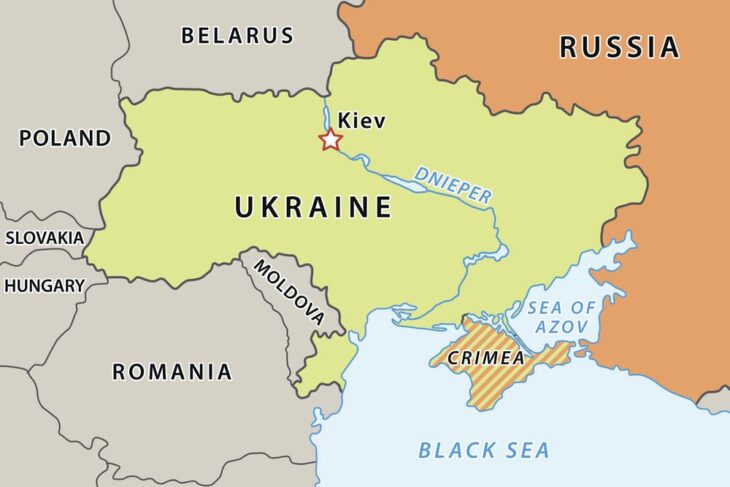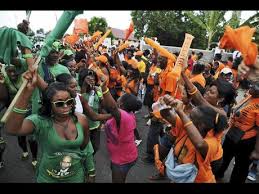
The past decade has seen public sector workers going through the ringer as it relates to pay. With the rate of inflation always in the back of one’s mind, the workers have had to endure a severe wage freeze or a wage increase so minuscule that when adjusted for inflation it is more like a loss of wages.
The nurses, police officers, teachers have, for the most part, been rather patient and tame during these negotiations. Apart from a few spasms (such as the nurses’ action) no incident of any real note has taken place. For the most part, they accepted that we had to all ‘ban belly’ to ensure the economy was stabilized and saw growth.
However, with the economy now no longer in freefall (though it still is in choppy waters) and with a government speaking of prosperity, we see where the public sector workers are no longer buying the ‘ban belly’ line and the ruling class has fully regrouped as it relates to bashing the Jamaican worker.
Dangerous things are happening, and the Jamaican worker must be wary, they must understand that everything that was won from 1938 through to the 1980s was fought for, was never guaranteed and was always liable to be withdrawn. They must also understand that what is happening with public sector workers is only the thin edge of the wedge.
The public sector workers are being asked (again) to take a pay rise that, when adjusted for inflation really looks like a loss or at best now breaking even financially. However, things get even touchier, for as the government looks to take the axe to the size of the public sector, the unions (albeit a bit late) are refusing to go along willingly to the slaughterhouse.
This impasse, coupled with the notoriously poor bargaining skills of the governing party, has led to public sector workers threatening to and, in some cases, actually taking some form of industrial action, something that has really taken people by surprise as the economy teeters along.
There are, in my opinion, two key things to be taken from this whole round of negotiations and public-sector reform. They are:
- that for the most part, the unions in this island have no camaraderie, no inter-union linkages; and
- that the Jamaican worker is entering a whole new sea that is fraught with choppy waters.
To the first point, it is important to note the trite but very true saying “united we stand divided we fall”. Our trade unions need to understand how the industrialists play the game and how they play them off one another. If union X demands a pay increase of 9% and the government states it can only afford 5%, then that remaining 4% gets taken from another sector. Divide and rule is a tactic as old as time, but it is made all the easier when the parties involved don’t care if the other lives or dies.
That may sound a bit harsh, but that is what it really boils down to at the end of the day. If, say the JTA demands a financial payout bigger than what has been budgeted for, then the difference will naturally be made up by other sectors, especially since we are not borrowing like before. This is not me saying that the unions or their officials should not ask for, nay demand, any improvements on what they currently get. For the most part, remuneration in the public sector is a joke. What I am saying is, demand smart and demand in unison.
They should be demanding things such as housing benefits, benefits for their children, sector transportation, more educational allowances and things of these types. If they were to demand these things while at the same time accepting the current wage offer, or even a lower one, then the workers would still be the winners as they would no longer have to use wage increases (even a small one) for necessities. In fact, they could use it for more leisure.
The lack of inter-union solidarity is bad, and changes in how they operate are urgently needed if the workers are to meet the challenges that await us. The challenges are varied and on the face of it many of them seem childish and quartered to one sector, but they will affect all workers in myriad ways.
Some of these insidious changes have been mooted in the past and are being re-hashed for the upcoming slashing of jobs. Take for example the topic of performance-based pay. This has always been bandied about, mainly with the teachers who have, for the most part, not had any of it (and for good reason). That thought has now moved into the arena of the police wage negotiations, as was mooted by the PSOJ.
Now, in spite of what one thinks of the teachers (and trust me, there are quite a few who should not be near any educational institution), that type of pay scale will do nothing to help the cause of increasing the quality of graduates, and if anything see an even greater spike in graduates who just don’t cut the mustard. Thinking about it logically, if we were to implement such a policy tomorrow for the teachers, nothing would change.
No teacher would be paid and it is not because they all suck at their jobs (though a shocking number do), it would be because the underlying reasons for the under-education still exists (a lack of funds, no help outside of school, etc). The same would apply to the entire public service. The underlying factors would still remain for nearly all public servants, up to and including civil servants who only execute ideas dreamed up by ministers.
The statements regarding the actions taken by the police and, also coming from the PSOJ, are troubling. Again, I would never say that the police do an excellent job, or that all of them are do-gooders. Quite a few are corrupt, and the good ones need to be shamed till they expose the corrupt ones. But for us to state, after they take industrial action, that they should be censored, then we have a problem. It is one thing to say that a certain critical sector should be barred from industrial action, that is understandable, but to call for the firing of these individuals and the censoring of the doctors who signed them off is beyond overkill and borders on something seen in Latin American dictatorships of old.
Even scarier is when the PSOJ suggested that the police be paid out of confiscated proceeds of crime. Such a suggestion, while initially seemingly brilliant, becomes more stupid and borderline insane when really thought out.
A cursory glance to the US where many jurisdictions have implemented such a policy will show that the police have become nothing short of bandits. People being arrested on trumped-up charges and their property confiscated, especially out of towners, should be worrying to us. When one really thinks about it, the PSOJ is suggesting that the police force, which is already notoriously corrupt, be allowed to seize and profit from people’s property and goods. That is endorsing theft and also pitting one sector (the police) against the others as the members of the force do desperately need the cash. When actually looked at and analysed, this whole wage negotiation statement from the PSOJ smacks of a group that is more than content to partially feed one sector by starving another.
The negotiations will be concluded most likely with the unions caving in. We have witnessed them caving for almost 20 years (accelerated in the last ten) and the union heads who coincidentally get fatter while rank and file members get thinner, will claim it as some success. The private sector may very well get its way, and the way we deal with employment in this nation will no longer look the same. When the inevitable bleed over happens, when it is the private sector employees who will have to face the chopping block (and that time is coming) we can look back at these wage negotiations for what to expect and hopefully we will actually fight it in a united way.



